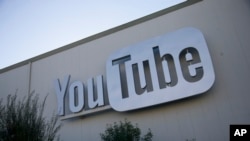Russians began experiencing a mass outage of the YouTube video platform on Thursday, after Russian authorities spent about a week throttling YouTube playback speeds, according to media reports.
The Russian internet monitoring service Sboi.rf said there had been thousands of glitches reported about YouTube in Russia, with some users saying they could access the site only through a virtual private network, or VPN. A VPN is a tool that helps people circumvent blocks on websites.
In July, Apple removed several VPN apps from its app store in Russia at the request of Russian authorities.
It remains unclear whether the Russian government is completely blocking YouTube or how long the outage will last. But Russian authorities have recently ramped up their criticism of YouTube.
The site has been one of the last remaining pillars of free speech in Russia, where the government fervently cracks down on any form of criticism. Mediascope estimates that more than 50 million Russians use YouTube every day.
But now, its future in Russia appears to be at risk.
Russian authorities have been intentionally slowing down YouTube playback speeds, according to the exiled Russian news outlet Meduza.
Although Russian officials blamed Google, which owns YouTube, for the slowdown, Meduza said it discovered that Russia’s state communications watchdog, Roskomnadzor, was responsible. A YouTube spokesperson last week also rejected the claim that the slowdown was YouTube’s fault.
Alexander Khinshtein, head of a Russian parliamentary committee on information policy, said last month that YouTube speeds would drop by as much as 70%.
Khinshtein said the slowdown was "a necessary step, directed not against Russian users, but against the administration of a foreign resource that still believes it can violate and ignore our legislation without punishment."
A YouTube spokesperson told VOA, "We are aware of reports of some people not being able to access YouTube in Russia. That is not as a result of any technical issues on our side or action taken by us."
Russia’s Washington embassy did not immediately reply to VOA’s email requesting comment.
Civil society groups have previously criticized YouTube for blocking content about the war in Ukraine. In May, more than 20 civil society groups called on YouTube and Google to stop helping Moscow suppress free speech by blocking videos about the war.
The Russian government, meanwhile, wants Google to unblock Russian state media channels on YouTube.
Some information for this report came from Reuters.





